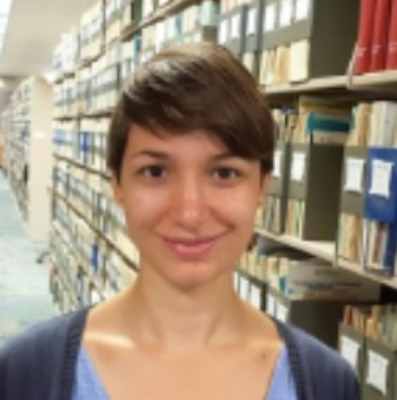Doctoral School PhD Special Award
The Doctoral Academic Committee may propose to the Doctoral School's Management Committee a Special Award for a Doctoral Thesis. A call for applications to be considered for this award may be made for every ten doctoral theses defended. To be eligible for the award, a student must have received at least two excellent cum laude distinctions when defending their thesis.
The call for applications will be made 18 months after the defence, and approval of the last of a set of 10 theses. This allows sufficient time to monitor the impact each thesis has in its field of study, and the academic and scientific publications to which it gives rise in the 18-month period subsequent to its defence or registration in the doctoral programme.
The Doctoral Academic Committee will establish a deadline for applications to be considered for an award, and the Department of Political and Social Sciences' secretariat will inform candidates thereof.
- Departmental Regulations: Special Award for Doctoral Studies.
- UPF PhD Regulations (in Spanish): UPF Doctorate's Academic Regulations.
Prizes Awarded

2023
Clément Perarnaud, for his thesis entitled “Why do negotiation processes matter?: Informal capabilities as determinants of EU Member States bargaining success in the Council of the EU” and supervised by Prof. Javier Arregui. This research investigates the power resources and influence of national governments in EU negotiations. It provides evidence that informal capacities, such as the effectiveness of Member States’ permanent representations in Brussels and their capacity to coordinate with other actors in the legislative decision-making system, matter for bargaining success. One of the main contributions of this research is to document variations in terms of human resources, structure and coordination, and link them to the outcome of recent legislative processes across various policy domains. Looking at the specific case of EU digital policies, the thesis shows how informal coordination mechanisms mobilised by the most digitally advanced countries of the EU have granted them significant influence over the shaping process of legislations of the Digital Single Market (DSM). The findings of the thesis draw on two datasets collected via 145 semi-structured interviews with national negotiators and EU officials, as well as participant observation in a permanent representation in Brussels.
Selected publications from the thesis:
- Perarnaud, C. (2022). Revisiting the informal power resources of member states’ permanent representations to the EU. Journal of European Integration, 1-19
- Perarnaud, C. (2022). Power to the connected? Determinants of member states’ bargaining success in the making of the EU Digital Single Market. Journal of Cyber Policy, 1-17.
- Perarnaud, C., & Arregui, J. (2022). Do Member States’ permanent representations matter for their bargaining success? Evidence from the EU Council of Ministers. Journal of European Public Policy, 29(1), 97-116.

2020
Alessandro di Nallo for his thesis "The Diversity of union and fertility trajectories in the UK" supervised by Gösta Esping-Andersen, explores the increasing complexity in the life course in the United Kingdom using data from a British longitudinal survey, UKHLS. The first article illustrates the association between parents’ socio-economic position and children’s transition to first union and parenthood. The results lend support to the hypothesis of a negative relation between socio-economic family background and timing of first union and a first non-marital birth. In the second article, I study the risk of a birth and the risk of separation in different union settings: biological children have a protective effect on union and that stepchildren are associated with higher risk of separation. The third article assesses whether parenthood influences repartnering for women and men and explores how repartnering is associated with parental status of the prospective partners. Among parents who have child custody, there emerges a distinct gender gap because mothers exhibit a lower rate of repartnering than fathers.
Selected publications from the thesis:
- Di Nallo, A. (2019), Gender Gap in Repartnering: The Role of Parental Status and Custodial Arrangements, Journal of Marriage and Family, Vol 81(1), pp.1-281
- Di Nallo, A., “The influence of parents’ social class and education on children’s transition to adulthood in the United Kingdom”
- Di Nallo, A., “Assessing institutionalization of stepfamilies. Union stability across families in Britain”
- Di Nallo, A., “Fertility progression across family constellations in the United Kingdom”

2017
Lydia Repke for her thesis entitled Multiple Cultural Identifications, Personality, and Social Networks“, supervised by Verònica Benet-Martínez from the Research and Expertise Centre for Survey Methodology explores the acculturating processes of individuals socialized in more than one culture, and how these individuals’ personality traits and cultural identifications relate to the content and structure of their habitual personal social networks. A major contribution of the thesis is that it creatively combines cultural and social-personality psychology with social network approaches, effectively blending micro- and meso-level research traditions and thereby opening up new lines of research in the fields of acculturation and migration studies. One of the main findings is that being well-adjusted to the host society and having well-integrated networks does not mean to have many host contacts but rather to have individuals from the host society and individuals of the same ethnocultural background in ones’ network who also know each other. This thesis, thus, does not only contribute to acculturation research but has the potential to impact public policies relating to immigration and diversity management.
Selected publications from the thesis:
- Repke, L., & Benet-Martínez, V. (in press). The interplay between the one and the others: Multiple cultural identifications and social networks. Journal of Social Issues.
- Repke, L., & Benet-Martínez, V. (2018). The (diverse) company you keep: Content and structure of immigrants’ social networks as a window into intercultural relations in Catalonia. Journal of Cross-Cultural Psychology, 49 (6): 924-944.
- Repke, L. & Benet-Martínez, V. (2017). Conceptualizing the dynamics between bicultural identification and personal social networks. Frontiers in Psychology, 8 (469), 1–19.

2016
Léa Pessin for her thesis entitled Changing Gendered Expectations and Diverging Divorce Trends - Three Papers on Gender Norms and Partnership Dynamics supervised by Gösta Esping Anderesen, examined how gender norms and work-family arrangements affect partnership formation and instability over the past five decades in the United States. Using a combination of longitudinal data from the Panel Study of Income Dynamics and attitudinal data from the General Social Surveys, I focused on the tension between women’s empowerment in the labor market and persistent traditional gender norms at home to explain long-run trends in marital instability. I derived two main conclusions that motivate my current and future research. First, work-family conflict and changing demographic trends are intimately intertwined. Low fertility and marital instability are concentrated in contexts where women’s roles as workers and mothers remain highly incompatible. Conversely, family instability and fertility decline have stalled in the most gender egalitarian contexts. Second, my dissertation shows that the outcomes of the gender revolution in the U.S. have been particularly uneven across social classes. I argue that in a context of rising income inequality and limited institutional support for families, the positive outcomes of the gender revolution, such as egalitarian gender responsibilities and stable partnerships, are unlikely to be accessible to less advantaged Americans.
Selected publications from the thesis:
- Pessin, L. (2018) “Changing Gender Norms and Marriage Dynamics in the United States.” Journal of Marriage and Family 80(1):25-41. doi: 10.1111/jomf.12444 [Article]
- Pessin, L. and B. Arpino. (2018) “Navigating between Two Cultures: Immigrants’ Gender Attitudes toward Working Women.” Demographic Research 38(35):967-1016. doi: 10.4054/DemRes.2018.38.35

2015
Núria Franco for her thesis entitled (2015) “Minority Nations, Political Parties and Immigration”, supervised by prof. Ricard Zapata-Barrero, investigates the relationship between immigration and minority nations. It focuses on Stateless Nationalist and Regionalist Parties (SNRP) through the lens of the centre periphery cleavage. Overall, the thesis make contributions towards the research question how do the main dimensions of the centre-periphery cleavage (identity, territory and economy) reflect on the SNRPs’ discourses on immigration? Paired comparisons of different SNRPs in different contexts (Catalonia, Quebec and Scotland) are carried out using qualitative content analysis of manifestos, parliamentary debates and other party documents. The thesis provides, among other contributions, a deeper understanding of SNRPs discourses on immigration and how centre-periphery relations interfere in its construction.
Selected publications from the thesis:
- Franco-Guillén, N. and Esteve & Garcia, S. (2016): "Secession and Immigration: An Exploration of Immigrant Views in the Catalan Case" in Pro-independence Movements and Immigration, pp. 163-186.
- Franco-Guillén, N. (2015) Selfishness of the Affluent? Stateless nationalist and regionalist parties and immigration. Journal of Ethnic and Migration Studies (Online first).
- Franco-Guillén, N. (2015) 'Which People? An exploration of the role of immigration in the secessionist process in Catalonia' in KJ. Nagel and S. Rixen (eds.) Catalonia in Spain and Europe - Is there a way to Independence? Baden-Baden: Nomos. 115-128
- Franco-Guillén, N. (2015) 'Los discursos de la diversidad: programas y debates electorales durante las elecciones municipales de 2011 en Cataluña' with B. Garcés Mascareñas and Elena Sánchez Montijano, in R. Zapata-Barrero: Las condiciones de la Interculturalidad: gestión local de la diversidad en España. Valencia: Tirant lo Blanc. 137-157.
